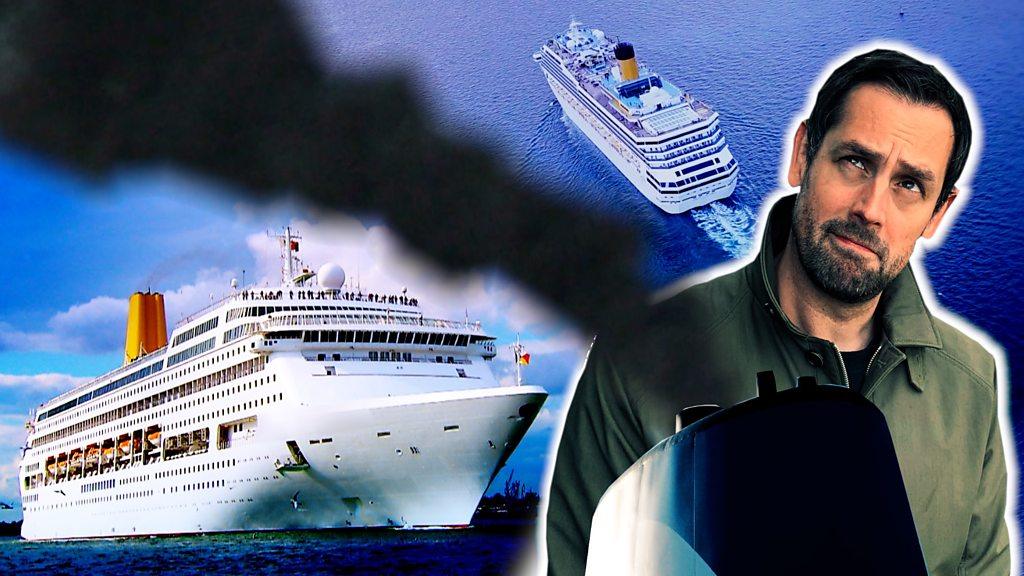Southampton among worst for cruise ship pollution, study says
- Published
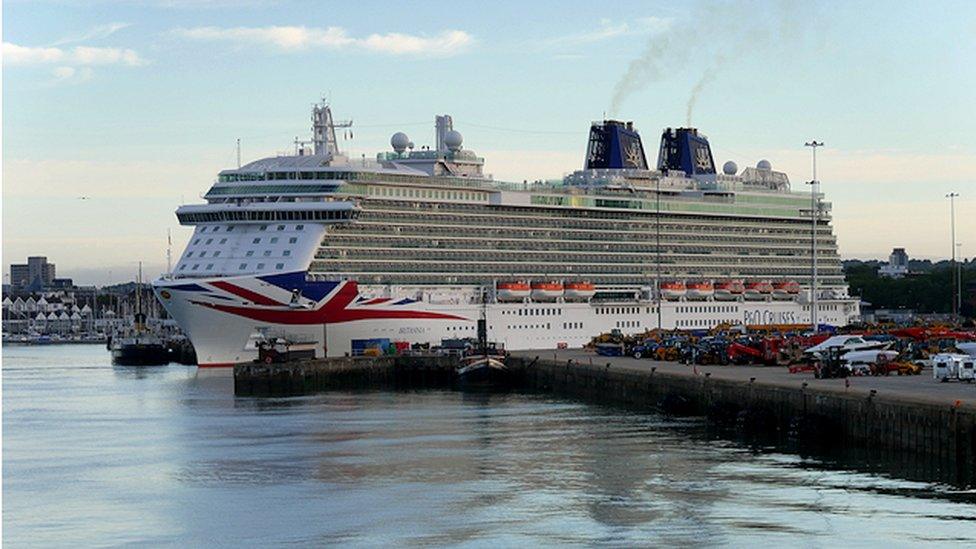
Southampton's emissions rose between 2019 and 2022, an environmental campaign group says
A UK port has some of the highest levels of cruise ship air pollution in Europe, a study has said.
Southampton's emissions rose between 2019 and 2022, environmental campaign group Transport & Environment reported.
Cruise ship-generated oxides of nitrogen and particulates ranked third among European ports while oxides of sulphur were seventh, it said.
The city's main cruise firm Carnival said it was working to reduce emissions and develop cleaner fuels.
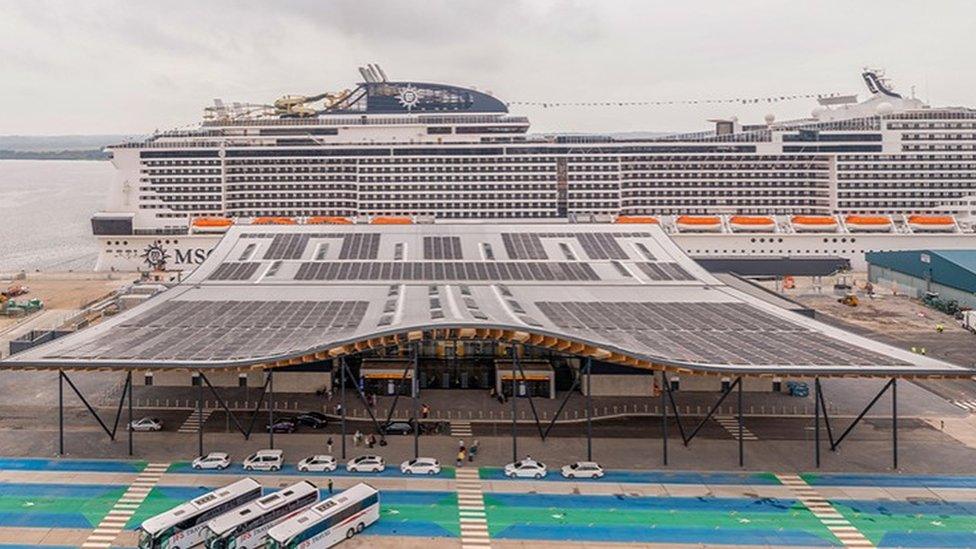
Horizon Cruise Terminal has one of two shore power installations for cruise ships in Southampton
Transport & Environment estimated levels of "toxic air pollutants" based on ships' movements, engines and anti-pollution technology.
Its report, external showed a 14% increase in sulphur emissions in Southampton over three years, a 10% rise in nitrogen and an 8% increase in PM2.5 particulates.
The group's sustainable shipping manager Jon Hood said: "If they don't plug in to shore power [cruise ships are] releasing these pollutants right into the heart of Southampton."
Barcelona
Dr Matt Loxham, an air pollution toxicologist from the University of Southampton, said the city's levels of sulphur dioxide, which is linked to breathing problems, were well within legal guidelines.
However, he said the health impact of particulates and oxides of nitrogen would likely be greater than for sulphur oxides in UK cities.
He said: "More research is needed to understand particulate emissions and whether they might contribute to health effects in port and coastal areas.
"It doesn't seem, from a Southampton City Council-commissioned study, that the ships' contribution to nitrogen oxides is that high at all."
The report said Barcelona was Europe's most polluted port last year followed by Civitavecchia, a coastal port northwest of Rome, and the Athenian port of Piraeus.
From 2021, cruise ships in Southampton have been able to plug into two shore-side power facilities, enabling them to turn off their engines.
However, only one facility can be used at a time to avoid excessive power drain to the local area.
Carnival said it was introducing new fuels such as liquefied natural gas (LNG), which would greatly reduce sulphur, nitrogen and particulates.
In a statement, the cruise firm added: "93% of our fleet uses advanced air quality systems to 'scrub' particulate matter and sulphur compounds from exhaust to improve air quality."

Follow BBC South on Facebook, external, Twitter, external, or Instagram, external. Send your story ideas to south.newsonline@bbc.co.uk, external.
- Published15 September 2021
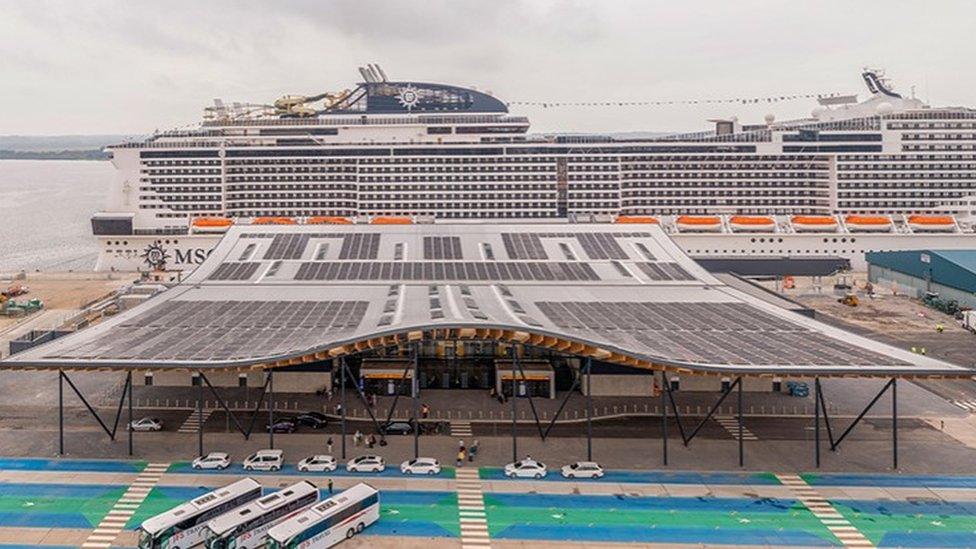
- Published1 April 2021
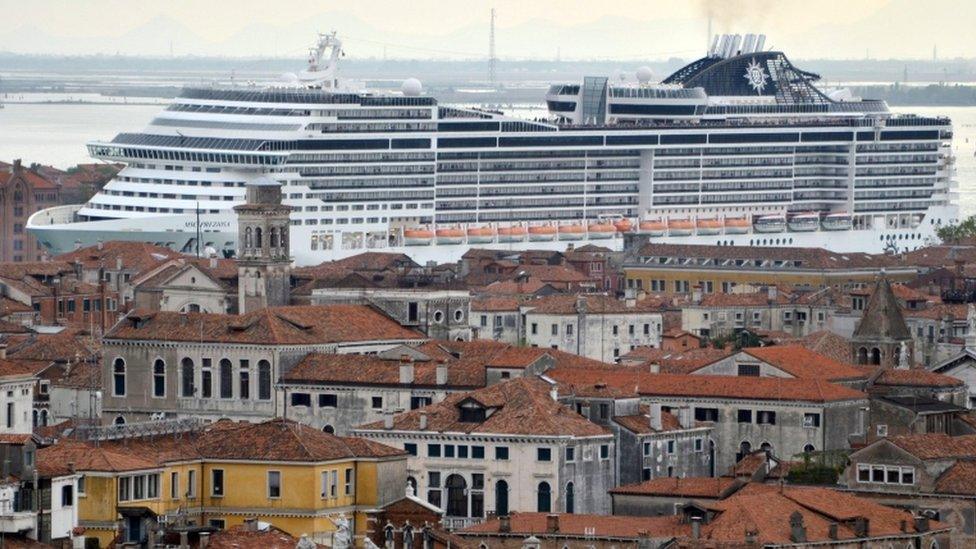
- Published12 March 2020
